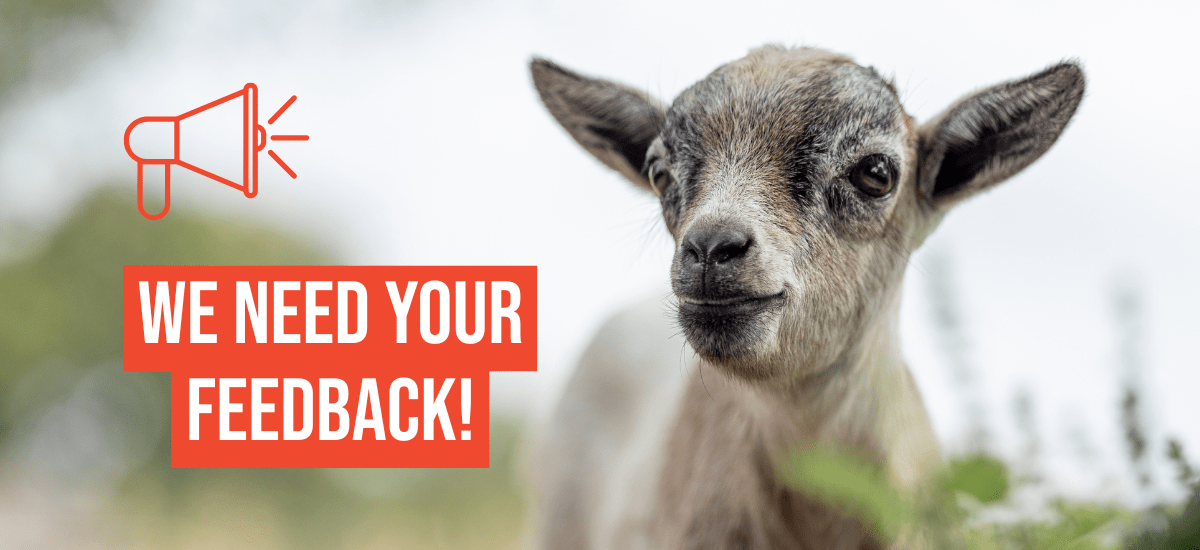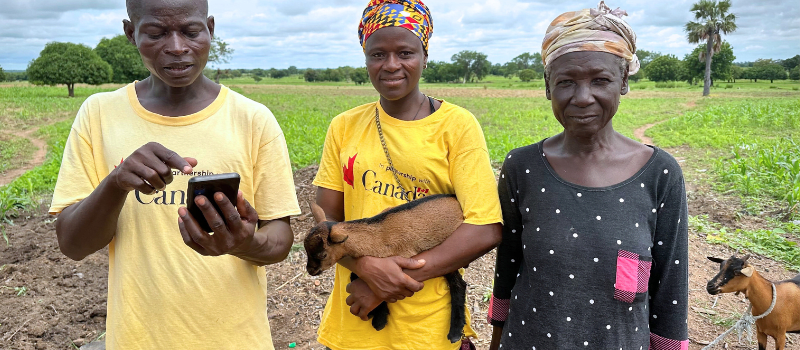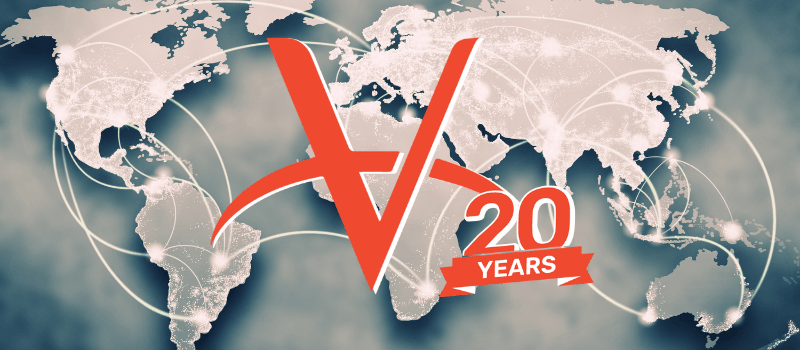In Senegal, Veterinarians Without Borders/Vétérinaires Sans Frontières Canada (VWB/VSF) has been working with our on-the-ground partner, Agronomes et Vétérinaires Sans Frontières (AVSF), to enhance livestock production and help women become more independent by strengthening organizations of female cashew and sesame producers, along organizations of women poultry farmers. Through a One Health model, VWB/VSF is working hard to invest in the well-being of the environment, along with animals and people.
Feeding Senegal's growing population has become a significant challenge, countrywide, as climate change has fueled erratic rainfall patterns and rising sea levels, which is contributing to soil erosion and salinization of critical soils. As the effects of climate change advance, globally, these challenges are expected to worsen.
VWB/VSF alumni VETS volunteer, Younoussa Barry, is an environmental and agroecology expert. He spent time training local farmers about best pesticide use practices to help improve the quality of crops, while also ensuring people, animals, and the environment remain protected from the pesticide's potentially negative side effects.
Read more about his time volunteering in Senegal.

Younoussa speaking to a group of farmers.
1. Why did you decide to volunteer your time with VWB/VSF?
I was looking for a job opportunity and I saw AVSF's posting for the position. It was after going through the administrative procedures that I learned it was a volunteer position. I agreed to do this volunteer work because the project takes place in the region of my birth. Given the objective of the project, I realized I could help in creating a favourable environment for the unique health determinants of this population, by way of an agro-ecological transition. This sense of patriotism, along with the support of VWB/VSF Canada, motivated me to do this volunteer work.
2. Can you talk about the pesticide program you worked on in Senegal? How is it benefitting the community?
The pesticide program operates in the department of Vélingara, located in upper Casamance. This department is one of the main cotton producers at the national level. Cotton cultivation consumes a lot of pesticides. These pesticides are used in field crops, (groundnuts, millet, maize, rice, cowpea, sorghum, etc.), which constitute the staple foods of local populations. Pesticides are also used in market gardening. In a nutshell, pesticides are used in all types of crops, often without sprayer protection, and an empty container management system does not exist.

Training locals on best practice for pesticide use.
Locals learning about best pesticide practice. The Pesticide Program works on good practices in the use of pesticides, strengthening capacity with professional and community actors, raising awareness with community radio stations, and doing home visits and talking directly with people who use pesticides. Additionally, the Pesticide Program has set up agroecological field schools, where we show farmers that it is possible to produce optimal yields without using pesticides or chemical fertilizers. These are demonstration fields where farmers come to learn production techniques that they will disseminate at home, (at the individual village level). The community benefits from this program with the strengthened capacity we have organized. The community actors are mainly women and young people. The program provides seeds, helps in the manufacturing of biopesticides, compost, and biofertilizers, and provides the necessary materials during these trainings. Support is provided to users and local communities on good practices for the use of pesticides, (identification of symbols, wearing PPE, management of empty packaging, materialization of treated fields).
3. Why is it important to invest in the health of our environment?
Investing in the health of our environment is essential for the balance of ecosystems. The impact of pesticides on human and animal health, and on the environment, is known to all. The type of production system that exists in the department of Vélingara is too dependent on pesticides, and we must continue this work to move towards a change in behaviour. The agroecological transition initiated by the Thiellal project must continue for the preservation of biodiversity and trees in production systems, the reduction of chemical inputs, and the restoration of degraded soils, to ultimately achieve climate balance. Investing in the health of our environment will allow actors, such as women and young people, to do a better job of having a balanced diet in their households.

Younoussa in the field.
4. Do you have a favourite memory from your time volunteering?
As a VWB/VSF volunteer, as part of the initiated agroecological transition, I assisted the Facilitator of the Commune of Paroumba to produce upland rice for the first time. Most farmers did not believe that this would be a successful endeavor in this region. In an area of 0.75 hectares, we obtained 64 bags of rice, each weighing 64 kilograms. Currently, all the farmers are looking for rice seeds for the next season. In addition, because of the success of the biopesticides that we have produced, we are called everywhere in the department to replicate this.
Interested in volunteering abroad? Check out our current openings.





